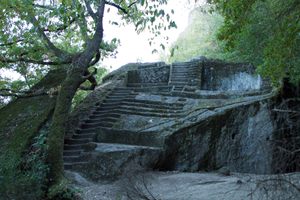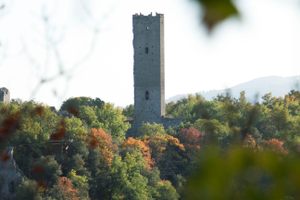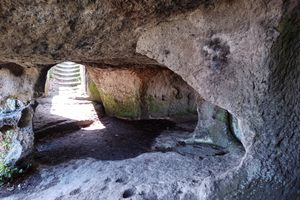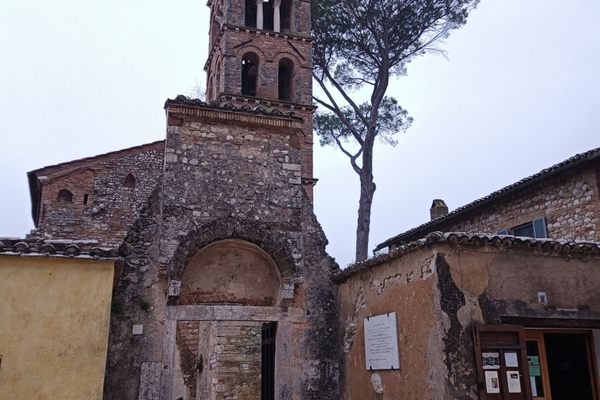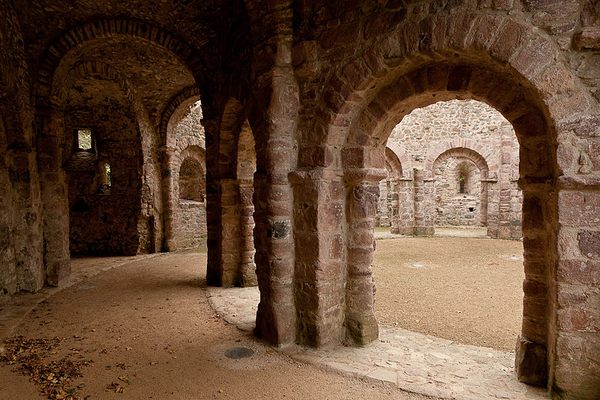About
A steep Etruscan Via Cava (excavated road) leads down to the unusual site of Santa Cecilia. Along the way, elaborate cave houses emerge from within the massive peperino boulders that are strewn around the canyon below the village of Bomarzo. One of the more elaborate cave houses displays holes which may have been carved to support an external structure with wooden posts.
The rock houses are but one sign of the area’s long human history. The remains of the 12th-century medieval church of Santa Cecilia are located at the center of the site. You can still identify the apse, the presbytery, the altar stone, and a number of Christian symbols.
All around the site you’ll see eerie human-shaped sarcophagi, with occasional Greek crosses in the reliefs. Some are damaged, others are intact, but they likely belonged to the medieval necropolis that was associated with the local church of Santa Cecilia. Another elaborate cave house in the proximity of the church of Santa Cecilia is shaped like an open-air altar, though its purpose is still unknown.
There are hypotheses that there is a strong continuity in this site throughout the Etruscan and medieval times, and that the original stone structures may have undergone a "Christianisation,” a religious cleansing of their pagan origins. The site, which has been almost completely taken over by the forest, was once a flourishing medieval community.
Related Tags
Know Before You Go
The sight is signposted on the trail that begins at the football grounds of Bomarzo (follow the arrows indicating Santa Cecilia). The site cannot be reached by car.
Flavors of Italy: Roman Carbonara, Florentine Steak & Venetian Cocktails
Savor local cuisine across Rome, Florence & Venice.
Book NowCommunity Contributors
Added By
Published
November 7, 2018
Sources
- https://books.google.com/books?id=88h3C2cmW_UC&pg=PA228&lpg=PA228&dq=Santa+Cecilia+Necropolis&source=bl&ots=kacqXZO7Ok&sig=h6-n1ApceZiQuWWE9FShyFccsr4&hl=en&sa=X&ved=2ahUKEwjShOWRu8DeAhUBrlkKHaA4A70Q6AEwCHoECAAQAQ#v=onepage&q=Santa%20Cecilia%20Necropolis&f=false
- http://www.italiamedievale.org/portale/linsediamento-rupestre-di-santa-cecilia/?lang=en





















